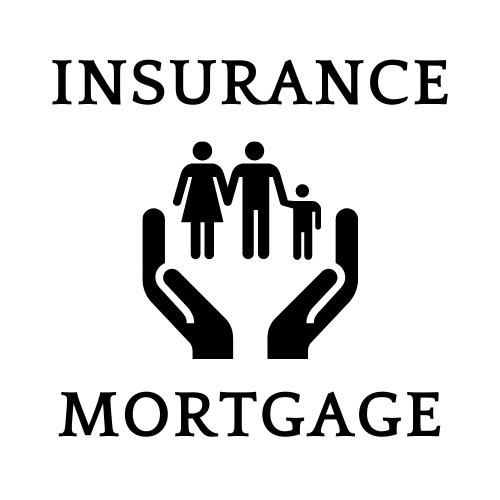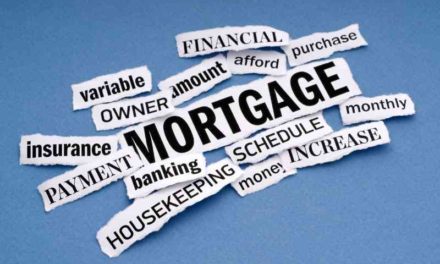Usually, a “fair” credit score of 620 is the lowest one needed to get a mortgage. Still, a number of things may affect this:
Loan Type: FHA loans, and other government-backed loans, sometimes have lower credit score criteria than do regular loans. You may, for example, be eligible for an FHA loan with a 10% down payment and a score as low as 500.
Lender: Lenders may have different minimum credit score requirements.
The credit score criteria for various mortgage types are broken out here:
Conventional Loan: Usually calls for a minimum score of 620.
FHA Loan: Requires a minimum score of 500 with a 10% down payment; a minimum score of 580 is advised with a 3.5% down payment.
Recall that even if you have the required minimum credit score, a higher score usually translates into better loan conditions and cheaper interest rates.
Your accessible assets, job status, monthly income, debt-to-income ratio*, and even the sales price and value of the property you wish to purchase are all factors that are taken into consideration when you submit a home loan application. Your credit ratings, on the other hand, will be one of the most important considerations for a mortgage lender.
A person’s credit ratings play a role in determining which loan programs they are qualified for, as well as the interest rate they are offered. Higher credit scores are often associated with more financing possibilities and, in certain cases, lower interest rates for you.
There is no singular answer to the question “What credit score is required for a mortgage?” since the minimum credit score criteria vary depending on the kind of loan program you apply for. To help you understand the many sorts of loans available and the credit score criteria for each, we’ve divided the information into numerous categories.
What is the minimum credit score required to purchase a home?
The minimum credit score required varies depending on the kind of mortgage you are applying for. A conventional loan requires a credit score of 620 or higher to be approved. The minimum credit score for an FHA loan is 580. For a VA loan, lenders often want a credit score of 580 or more, with the USDA recommending a score of 640 or higher.
In contrast, lenders who lend to veterans and USDA borrowers who are generally creditworthy but whose credit scores are lower than the minimum standards may be granted discretion to accept their loans.
Is it possible to purchase a property with a credit score of 630?
With a credit score of 630, you will be able to apply for a mortgage. The minimum credit score for a conventional loan is 620; the minimum credit score for an FHA loan is 580, and the minimum credit score for a VA loan is normally established by the lender. Your chances of being approved for a mortgage loan and receiving competitive interest rates are enhanced if you can raise your credit score before applying for one.
In addition to reaching the minimal credit score requirements, you’ll also need to fulfill additional eligibility conditions, such as having enough income to cover your monthly payments, proving your employment, and having a debt-to-income ratio that meets the lender’s standards, among others.
Is a credit score of 670 considered good?
According to the FICO score model, which is utilized by mortgage lenders, a credit score of 670 is regarded to be excellent. However, the better your credit score, the more likely it is that you will qualify for a loan and get reasonable interest rates on it.
Even if you have a lower credit score than you believe you’ll need to qualify for a mortgage, you should still speak with a lender. They may provide recommendations on what you should do in order to improve your score.
Depending on your financial situation and credit rehabilitation strategy, the procedure might take many months or even years to complete. However, seeking feedback from a professional will confirm that you are on the correct course.
You might think of your credit score as a condensed version of your complete credit report, which is a record that details your credit history and how effectively you’ve handled your bills. It is determined how well you manage your finances based on five main characteristics of your financial habits:
- Payment history (and whether you’ve paid on time): 35%
- Amount of debt you have: 30%
- Length of credit history: 15%
- New credit you’ve taken on: 10%
- Types of credit you have: 10%
Most individuals have credit scores ranging from 300 to 850 (a perfect score), but the majority of people lie somewhere in the middle, which is why lenders and even credit reporting agencies categorize credit scores into ranges:
- 740 to 850: good
- 670 to 739: fair or acceptable
- 580 to 669: below average or low
- 300 to 579: subprime
From the standpoint of a lender, where you fall on the credit-scoring scale indicates a great deal about your ability to repay a house loan. There are few exceptions to the rule, which is why lenders impose minimum credit scores for mortgage applications.
Similarly, knowing your credit score before you start looking for a house is critical; otherwise, you might be wasting time getting your hopes up for a home when your time would be better spent working on increasing your credit score first.
Credit score criteria vary depending on the loan type
Before we get into the specifics of minimum credit score requirements, it’s important to note that lenders frequently add more conservative credit score requirements, referred to as “overlays,” on top of the minimum score requirements for different loan programs in order to reduce their risk exposure.
There are many various lenders out there, so even if you are turned down by one, it is worthwhile to apply with a number of other institutions.
It’s likely that some lenders may even offer to assist you in repairing your credit history, which in turn can help you improve your FICO ratings, allowing you to get the best possible interest rate and conditions for your mortgage.
What is the meaning of a FICO score?
FICO is the sort of credit score that 90 percent of the lending community in the United States, including mortgage lenders, uses. Credit scores are influenced by many factors, including your payment history, how much of your available credit you are presently using, how long you’ve had credit accounts (such as credit cards or loans), and how much new credit you have created and applied for.
You will be evaluated by your lender when you apply for a mortgage to purchase a house. Your lender will examine your FICO ratings from the three main credit bureaus: Experian, Equifax, and TransUnion.
Your credit scores are influenced by the information included in your credit report. All three credit agencies keep a credit profile on you that includes a thorough credit history. Which shows the sorts of accounts you have had or now have and whether or not you have made on-time payments on each of those accounts. Credit cards, school loans, auto loans, personal loans, and mortgages from the past or present will all be shown on your credit report.
Your payment history is the single most important component in determining your credit score. In addition, your credit utilization ratio (how much of your available credit you are presently utilizing) and the age of your credit report are factors that might impact this number (how long your accounts have been open).
Conforming loans that are traditional in nature
According to the government-sponsored companies Fannie Mae and Freddie Mac, a conforming conventional mortgage requires a FICO score of at least 680 in order to be approved. These sorts of loans have maximum loan restrictions, which means that the amount you may borrow is limited to a certain amount.
Loans from the Federal Housing Administration
580 is the minimum FICO score required to qualify for an FHA loan with a down payment of at least 3.5 percent, according to the Federal Housing Administration (FHA) qualification requirements.
The Federal Housing Administration now permits homebuyers with FICO scores ranging from 500 to 579 to qualify for a mortgage provided they make a 10 percent down payment and fulfill all other lending requirements.
The Federal Housing Administration (FHA) also allows lenders to accept homeowners who do not have typical credit or FICO scores. Alternate types of credit are accepted by certain lenders, such as a history of on-time payments for things like rent or utilities, mobile phone bills, insurance premiums, and streaming services.
Loans from the Veterans Administration
The VA does not establish minimum necessary FICO scores, but rather encourages lenders to assist creditworthy, qualifying veterans or service members in their pursuit of homeownership.
According to the VA, lenders may accept consumers with no credit scores or alternative credit, although other lenders need 580 minimum FICO ratings, while others may want 620 minimum FICO scores, among other requirements.
Because of lender factors, an applicant who is turned down by one lender should not assume that they would be turned down by another lender as well.
You should speak with a lender regardless of whether your credit score is non-existent or on the low end of the scale. You may be shocked to hear that you already qualify, or that you may qualify in the future with specific credit improvement measures taken now or in the future.
USDA loans are a kind of loan that is backed by the government
USDA loans are intended to assist borrowers with low- to moderate incomes in purchasing houses in rural and suburban locations. With the support of the United States Department of Agriculture (USDA), these zero-down home loans assist to make homeownership more accessible in USDA-eligible locations.
The USDA recommends a minimum FICO score of 640 as a starting point. Borrowers with modest debt loads, solid credit, and a stable source of income, on the other hand, maybe qualify for USDA loans even if their credit scores are lower than 640 points. Lender criteria, on the other hand, may differ.





